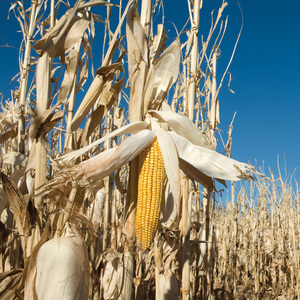NCGA says USDA trade aid not enough, calls for RFS, E15 support

August 29, 2018
BY Erin Krueger
On Aug. 27, the USDA released details on the $12 billion in aid it previously announced would be provided to assist farmers who have been impacted by retaliatory tariffs on U.S. agricultural goods. In response, the National Corn Growers Association called on the Trump Administration to rescind tariffs, secure trade agreements, and allow for higher blends of ethanol. The NCGA said these actions would allow for the marketplace to drive demand.
Information released by the USDA indicates its Farm Service Agency will administer the Market Facilitation Program to provide payments to corn, cotton, dairy, hog, sorghum, soybean and wheat producers starting Sept. 4. Also under the plan, the USDA’s Agricultural Marketing Service will administer a Food Purchase and Distribution Program to purchase up to $1.2 billion in commodities targeted by retaliation. These commodities will be distributed through nutrition assistance programs. In addition, the Foreign Agricultural Service’s Agricultural Trade Promotion Program will make $200 million available to develop foreign markets for U.S. agricultural products.
For the Market Facilitation Program, USDA said interested producers can apply after harvest is 100 percent complete and they can report their total 2018 production. For corn, the initial payment rate has been set at 1 cent per bushel, with an estimated initial payment of $96 million. Market Facilitation Program payments are capped per person or legal entity at a combined $125,000 for corn, cotton, sorghum, soybeans and wheat.
Advertisement
In a statement, the NCGA said the plans unveiled by USDA “would be insufficient to even begin to address the serious damage done to the corn market as a result of the Administration’s actions.”
“NCGA members had a spirited debate on the prospect of trade aid during last month’s Corn Congress meeting,” said NCGA President and North Dakota farmer Kevin Skunes. “While most members prefer trade over aid, they support relief if it helps some farmers provide assurances to their local bankers and get through another planting season. Unfortunately, this plan provides virtually no relief to corn farmers.”
Advertisement
While the USDA’s plan sets the payment rate for corn at just 1 cent per bushel, an NCGA-commissioned analysis shows trade disputes are estimated to have lowered corn prices by 44 cents per bushel for crop produced in 2018. The NCGA said this amounts to $6.3 billion in lost value on the 81.8 million acres of corn projected to be harvested in 2018.
“NCGA has understood from the beginning that this aid package would neither make farmers whole nor offset long-term erosion of export markets,” Skunes said. “But, even with lowered expectations, it is disappointing that this plan does not consider the extent of the damage done to corn farmers,” Skunes said. “Once again, we are calling on the Administration to settle trade disputes and support a strong Renewable Fuel Standard. These no-cost, immediate actions would deliver a real win for rural America.”
Additional information on the Market Facilitation Program is available on the USDA website.
Related Stories
U.S. fuel ethanol capacity fell slightly in April, while biodiesel and renewable diesel capacity held steady, according to data released by the U.S. EIA on June 30. Feedstock consumption was down when compared to the previous month.
XCF Global Inc. on July 8 provided a production update on its flagship New Rise Reno facility, underscoring that the plant has successfully produced SAF, renewable diesel, and renewable naphtha during its initial ramp-up.
The U.S. EPA on July 8 hosted virtual public hearing to gather input on the agency’s recently released proposed rule to set 2026 and 2027 RFS RVOs. Members of the biofuel industry were among those to offer testimony during the event.
The U.S. exported 31,160.5 metric tons of biodiesel and biodiesel blends of B30 and greater in May, according to data released by the USDA Foreign Agricultural Service on July 3. Biodiesel imports were 2,226.2 metric tons for the month.
The USDA’s Risk Management Agency is implementing multiple changes to the Camelina pilot insurance program for the 2026 and succeeding crop years. The changes will expand coverage options and provide greater flexibility for producers.
Upcoming Events










